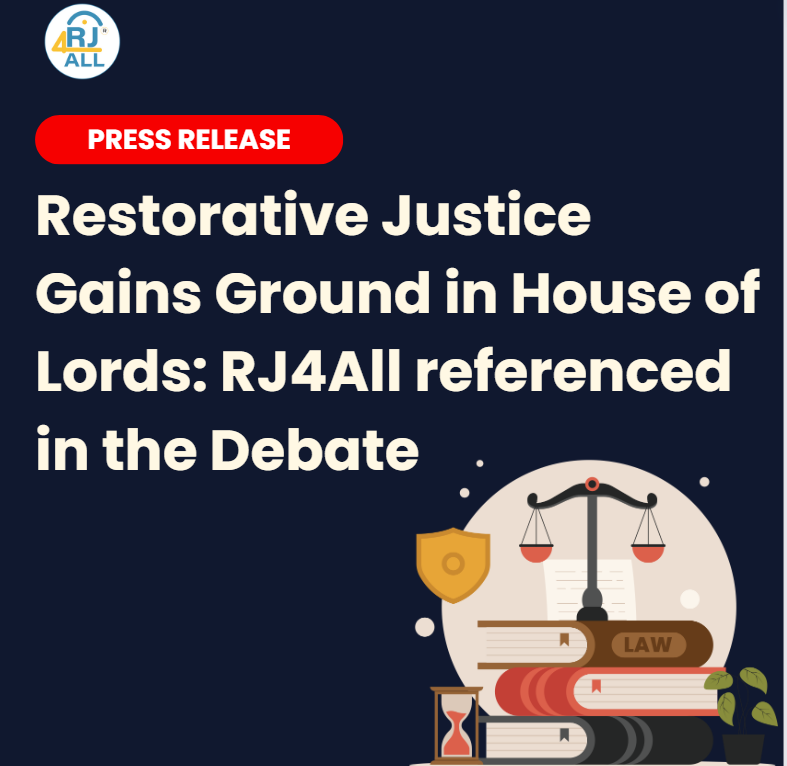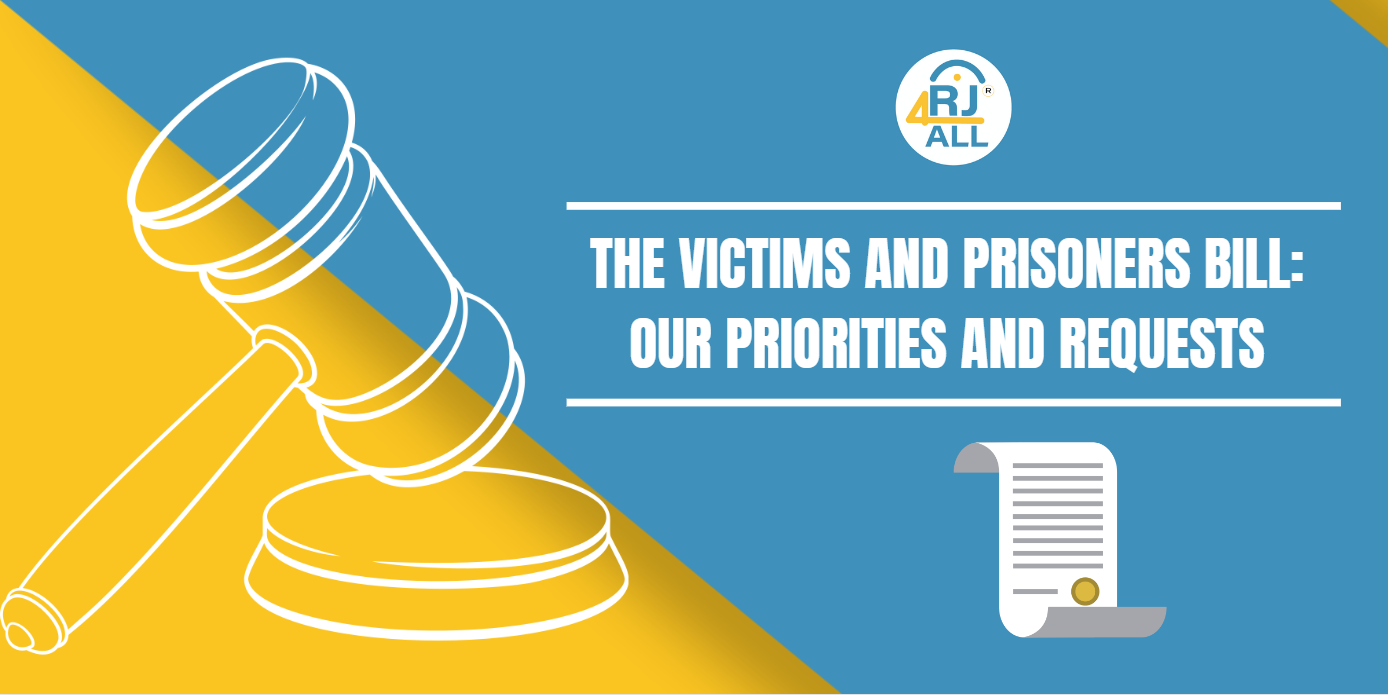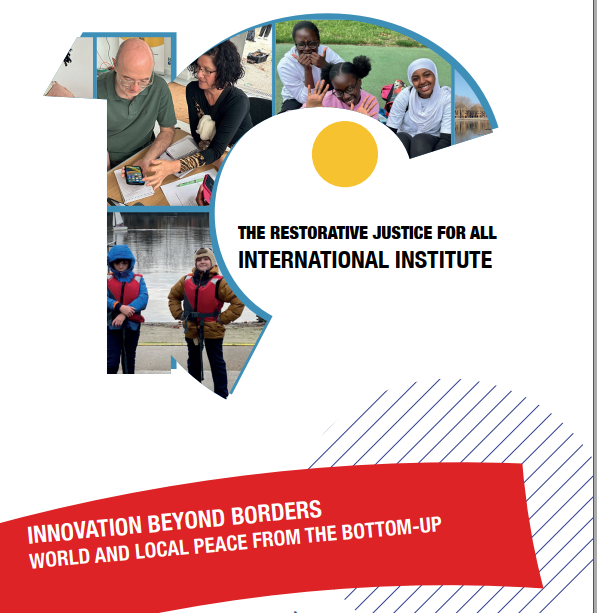The Victims Bill, the Rwanda Bill and the post office miscarriages of justice
The Victims Bill, the Rwanda Bill and the post office miscarriages of justice: What do they have in common?
An article by Dr. Theo Gavrielides, Founder and Director, RJ4All
This week, UK politics are dominated by the Safety of Rwanda (Asylum and Immigration) Bill and the shameful post office related miscarriages of justice. I doubt that this attention is due to a genuine interest in getting it right for victims. What I am certain about is that amid all the political dramas, we are about to miss yet again an opportunity to put things right for victims relating to this latest news, but also any future victim.
I am referring to
the Victims and Prisoners Bill, currently at a Committee stage in the House of Lords. The Bill has been passed on from government to government, and is a legacy of our international failings to legislate and protect basic victims’ rights that are aligned with international treaties including the European Union
Victims’ Directive and the Council of Europe
European Convention on Human Rights.

Rights without teeth
Pursuant to section 33 of the Domestic Violence, Crime and Victims Act 2004, the Code of Practice for Victims of Crime in England and Wales (Victims Code) was passed and subsequently revised (October 2015), following the legal obligation to incorporate into domestic law the Victims’ Directive. The Code was again revised in April 2021, but of all its changes it remains nothing but “nice guidance” to criminal justice service providers to do the right thing. It is not statutory and has no teeth that would hold those violating victims’ rights into account. This is despite many promises by current and past Ministers to better protect victims and empower them to heal and restore. The Victims Bill was thought to be the opportunity to rectify this, bringing the UK a few steps closer to its international obligations.
Walking backwards
But alas, the Bill has been criticised by many as having taken steps back in protecting victims, and in fact, taking away some of their existing rights. The Restorative Justice for All International Institute, which I set up and have been directing for the last decade, presented to government, responsible Ministers and Select Committees undeniable evidence pointing to the potential failings of the Bill, and putting forward evidence-based amendments.
Time for restoring justice
Even at this late stage of the Bill and in the backdrop of various political dramas, today I summarise three key amendments that we have been discussing with Green Party peers Baroness Bennett of Manor Castle and Baroness Jones of Moulsecoomb, and our local MP Neil Coyle (Labour). I focused these amendments on restorative justice, a concept and a practice that I have been studying, critically analysing and practising for over 20 years. Restorative justice was also the main reason I diverted my focus from practising the law as a barrister to protecting and empowering harmed and harming parties in restoring harm. It is also the foundation on which I built RJ4All, and the ethos that I try to apply in my life, personal and business affairs. Restorative justice has proved over and over again that it is not about “getting offenders off the hook” but in providing an alternative that, when it works, works really well for everyone affected by harm. In fact, the more complex the crime the more chances for restorative justice to succeed. This is because it demands voluntary and honest participation and dialogue by everyone affected. This is not an easy undertaking. As we put forward these amendments, we remain neutral in our approach including presenting arguments both for and against restorative justice, as these are drawn from evidence.
The right to restorative justice
In the UK, restorative justice has historically been practised in the shadows of the law and through the community (Gavrielides, 2021). After the 2010 change in government, key reforms took place in the adult and youth justice sentencing philosophy (Ministry of Justice, 2012) in the hope of reducing costs and increasing efficiency. In December 2012, the Ministry of Justice published its revised Referral Orders Guidance to courts, Youth Offending Teams (YOTs) and Panels (Ministry of Justice, 2012). This followed the first national government strategy on restorative justice and the investment of considerable funds. This started in 2013 with £29 million that went to Police and Crime Commissioners1 to help deliver restorative justice for victims over three years. The money was part of a wider allocated funding for victims of at least £83 million through 2015-16. The biggest development was the passing of the Crime and Courts Act 2013 as it inserted a new section into the Powers of the Criminal Courts (Sentencing) Act 2000. Subsequently, since December 2014, the courts have had the power to defer the passing of a sentence to restorative justice provided that all parties agree. The Act also requires that anyone practising restorative justice to have regard to the guidance issued by the Secretary of State2. But the cases that have been diverted to restorative justice are only a handful. I have studied the reasons behind this failure thoroughly including conducing multi-year fieldwork with victims and offenders (Gavrielides, 2019; 2018; 2016; 2014). For example, my research pilot in London looked at the reasons MOPAC’s commissioned restorative justice service failed to meet expectations (Gavrielides, 2018).
The Victims Code introduced a victims’ right (Right no 3) to receive information about restorative justice including the option to divert their cases. But evidence shows that this expectation is not being honoured and the soft touch of the Code is simply being ignored (Gavrielides, 2019; 2018; 2016; 2014). So, if we are serious about providing harmed and harming parties with real rights and an option in the way we pursue justice, there is a unique opportunity to introduce through the Victims and Prisoners Bill (Part 1, Article 2) a right to restorative justice. This would also be aligned with The Council of Europe Recommendation CM/REC(2018)8 concerning restorative justice in criminal matters (“Recognising that restorative justice can complement traditional criminal proceedings, or be used as an alternative to them”).
The right to know about restorative justice
The second key point goes back to the issue of awareness. Under the Bill, there is no obligation for criminal justice agencies to inform harmed parties about restorative justice. The parties must know about restorative justice to opt for it. Part 1, Article 6 of the Bill could provide for a right to be informed about restorative justice, finally addressing the soft touch of the Victims Code. Quoting from CM/REC(2018)8 “Restorative justice may be used at any stage of the criminal justice process”.
The right to choose
Finally, focusing on harmed parties of gender-based violence, the Bill states that the government must issue guidance about independent domestic violence (IDVAs) and sexual violence (ISVAs) advisors. I have evidence to believe that agencies offering ISVAs and IDVAs will control the field of provision, and any restorative justice agencies offering support to victims of either sexual or domestic violence will need to conform. In fact, these new restrictions will actually limit accessibility for harmed parties while also trying to control the community nature of restorative justice. Furthermore, ISVA/IDVA training courses are expensive, and therefore not feasible for all organisations while they could be used as profit generating opportunities. This therefore runs the risk of excluding victims who rely on charitable services such as ours, and may exacerbate any existing problems which are generated through harmed parties’ mistrust in the criminal justice system and its continuous failings.
… and the answer is …
The forgotten victim is what the Rwanda Bill, the post office miscarriages of justice and the Victims Bill have in common. Putting drama aside (literally), including BBC’s latest documentary
Liar: The Fake Grooming Scandal, I ask that we put politics aside and for once do the right thing. We call for cross-party support to our proposed amendments as well as unity in the pursuit of justice and this includes restorative justice.

Read RJ4All's Open Letter and Full Proposal
Resources
Gavrielides, T. (2023). “Domestic Violence and Power Abuse Within The Family: The Restorative Justice Approach” in Sturmey, P. (Eds). Violence in Families in Book Series Advances in Preventing and Treating Violence and Aggression, New York: Springer. ISBN: 978-3-031-31548-0
Gavrielides, T. (2019). Collapsing the criminal labels of domestic violence: A social and restorative justice approach, London: RJ4All Publications. ISBN: 978-1-911634-15-7.
Gavrielides, T. (2018). "Victims and the restorative justice ambition: A London case study of potentials, assumptions and realities". Contemporary Justice Review: Issues in Criminal, Social, and Restorative Justice, pp. 1-22.
Gavrielides, T. (2019) Safeguarding and Empowering Crime Victims: Training manual: Restorative justice and the Victims’ Directive, London: RJ4All Publications. ISBN: 978-1-911634-09-6. DOI: 10.13140/RG.2.2.10019.12327
Gavrielides, T. (2017). “Collapsing the labels “victim” and “offender” in the Victims’ Directive & the paradox of Restorative Justice”. International Journal of Restorative Justice, Volume 5, Special Issue 3: Reimagining victims and restorative justice: the European Union, Canada and beyond, p. 368-381.
Gavrielides, T. (2016). “Repositioning Restorative Justice in Europe: The Victims’ Directive”, Victims & Offenders Vol. 11, Iss. 1, pp. 71-86.
Gavrielides, T. (2014), A victim-led criminal justice system for Europe: Addressing the paradox, IARS Publications: London. ISBN 978-1-907641-27-5.
Gavrielides, T. (2015). “The Victims’ Directive and What Victims Want from Restorative Justice”, Victims and Offenders Journal, Vol: 10. Issue 2. pages 1-22. DOI 10.1080/15564886.2014.982778
Gavrielides, T. (2015). “Is Restorative Justice appropriate for Domestic Violence cases?”, Vol 14. Issue 4, Social Work Review. pp. 105-121.
2016 Justice Select Committee Restorative Justice Inquiry, Dr Theo Gavrielides expert witness - https://www.theogavrielides.com/single-post/rjweek23
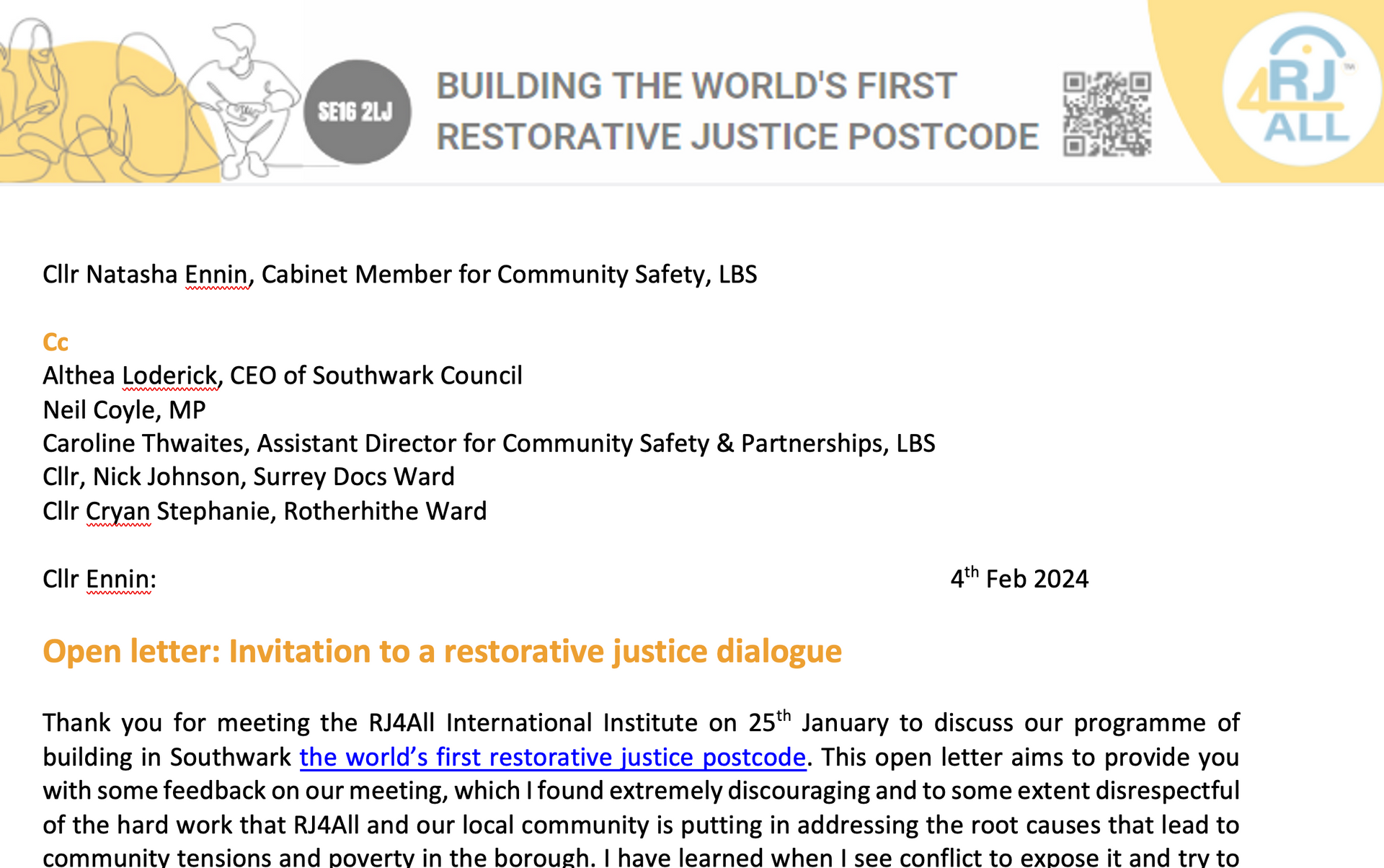
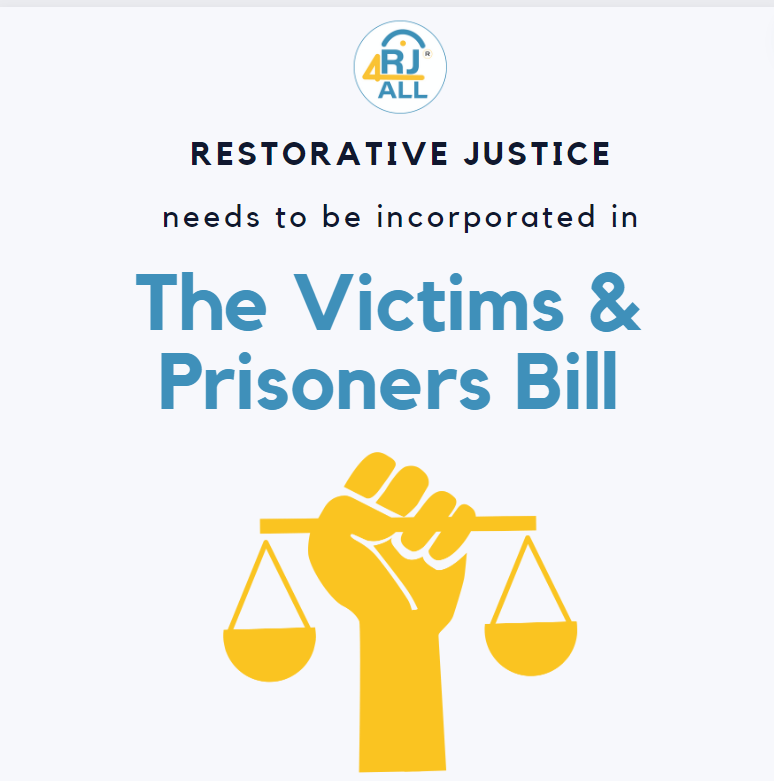

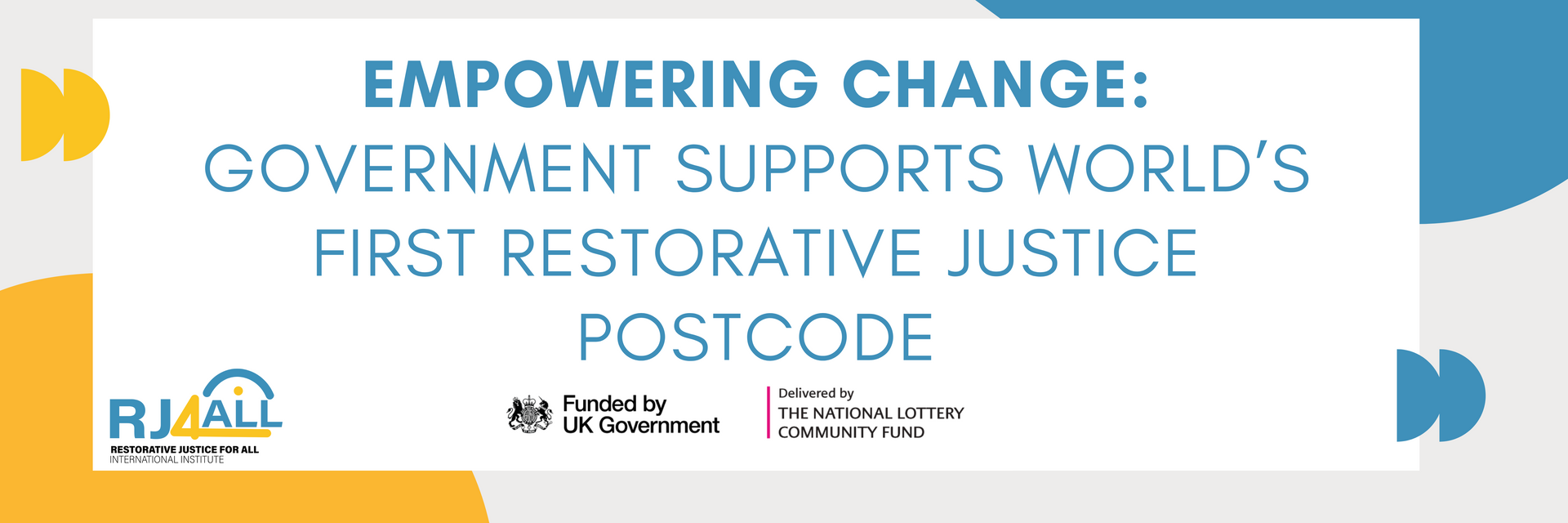

Restorative Justice for All International Institute (RJ4All)
The RJ4All Rotherhithe Community Centre, 30 Plough Way London SE16 2LJ, UK
admin@rj4all.org | +44(0)7708758600 or 07795678904



